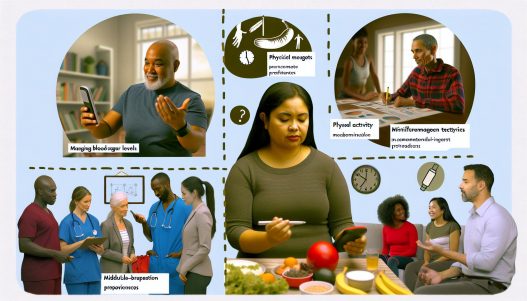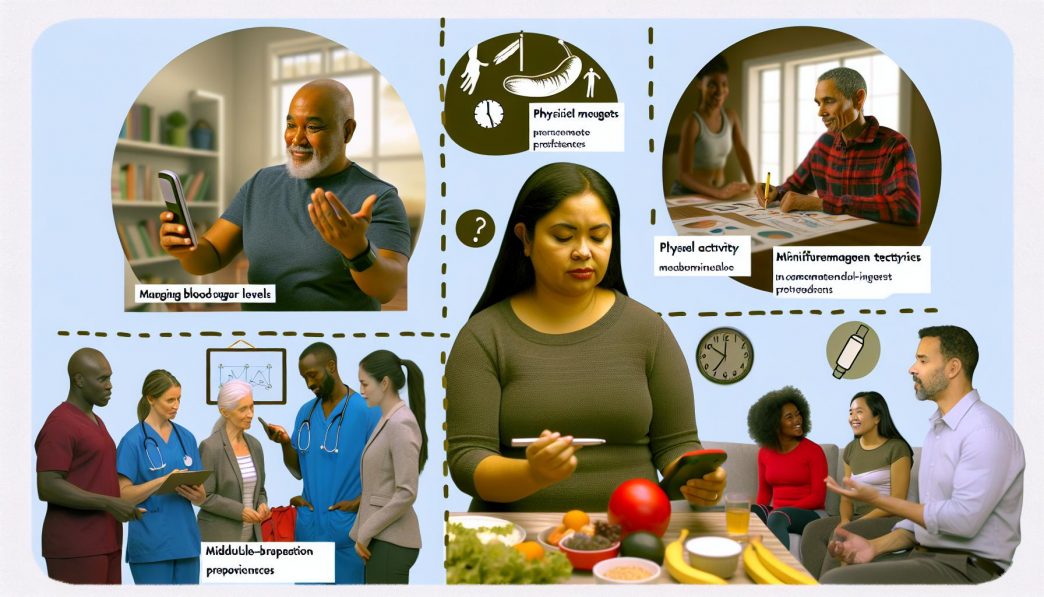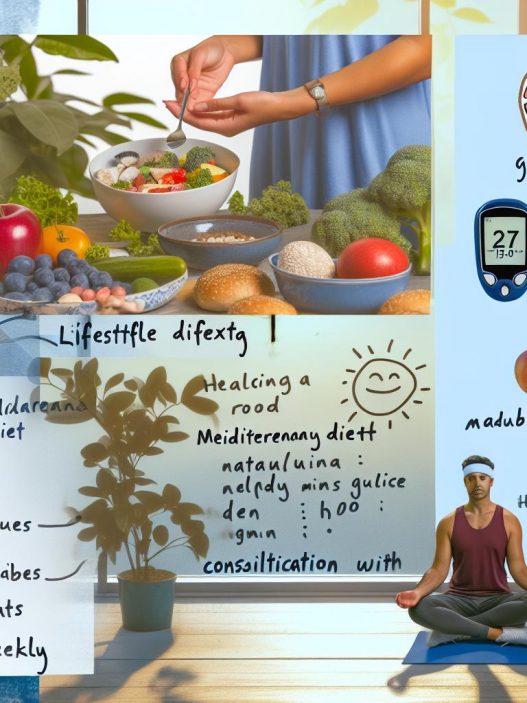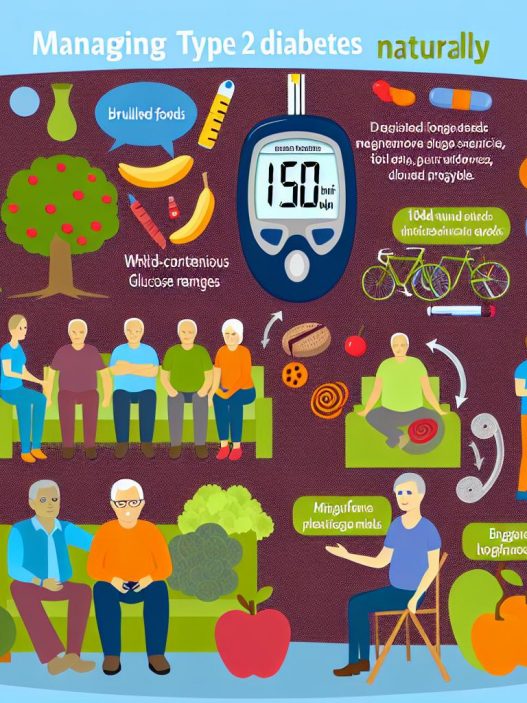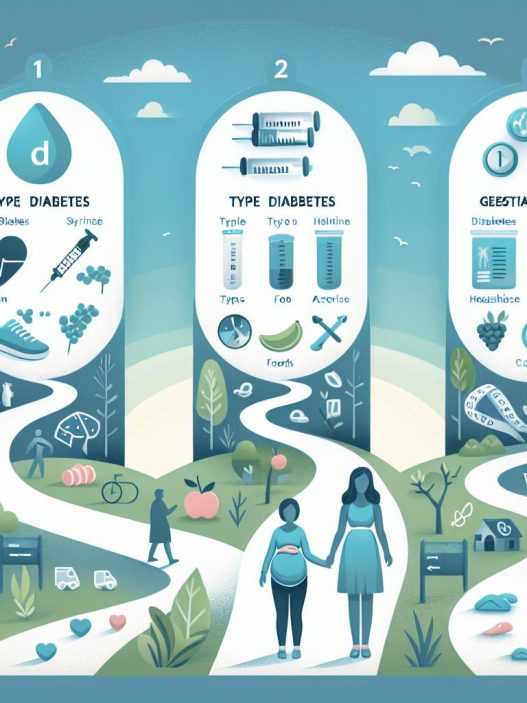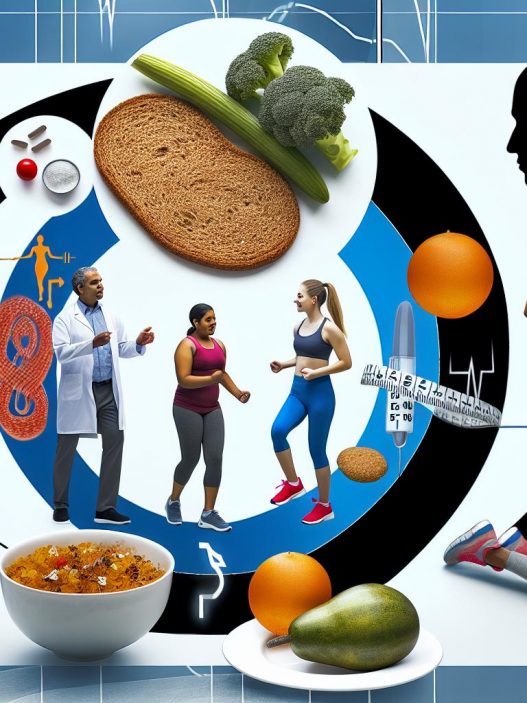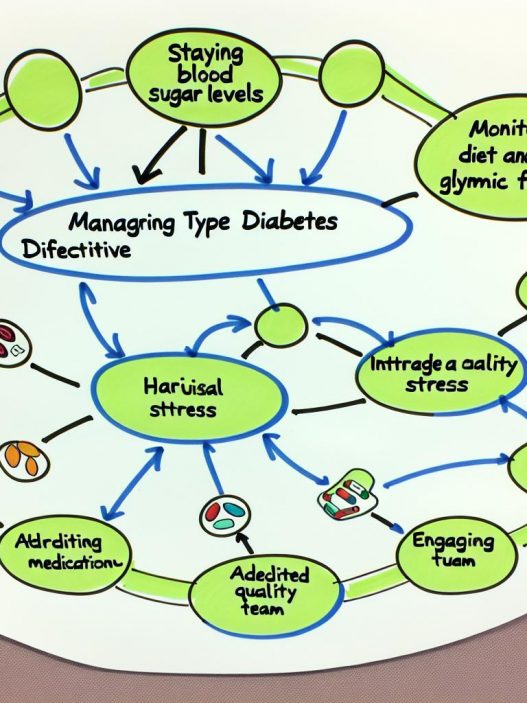# 10 Simple Tips for Managing Type 2 Diabetes Effectively
Managing type 2 diabetes can seem daunting, but with the right strategies, it is entirely possible to lead a healthy and fulfilling life. This comprehensive guide provides ten simple yet effective tips that empower individuals to take control of their diabetes. These tips are grounded in evidence-based practices and center on lifestyle changes, dietary adjustments, and proactive health management. Whether you are newly diagnosed or have been living with diabetes for years, these strategies can significantly improve your quality of life and help you maintain optimal blood sugar levels.
Understanding Type 2 Diabetes and Its Impact
Type 2 diabetes is a chronic condition affecting the way your body metabolizes glucose, leading to high blood sugar levels. Unlike type 1 diabetes, where the body does not produce insulin, individuals with type 2 diabetes either do not produce enough insulin or their cells become resistant to it. This condition can lead to serious health complications such as heart disease, kidney damage, nerve damage, and vision problems if not managed correctly. Understanding the underlying mechanisms of type 2 diabetes is crucial for effective management and prevention of complications. Furthermore, awareness of how lifestyle choices directly impact blood sugar levels empowers patients to make informed decisions about their health.
The management of type 2 diabetes involves a multifaceted approach, where dietary choices, physical activity, medication adherence, and regular health monitoring play integral roles. Each person’s journey with diabetes can vary greatly, thus developing an individualized management plan can lead to more favorable health outcomes. This guide outlines ten fundamental tips that can help individuals with type 2 diabetes manage their condition more effectively, enhancing their overall well-being.
Tip 1: Monitor Blood Sugar Levels Regularly
Monitoring blood sugar levels is an essential component of managing type 2 diabetes effectively. Regular checks allow individuals to understand their glucose patterns and identify factors that influence fluctuations. Using a blood glucose meter, patients can assess their levels before and after meals, as well as at various times throughout the day. This helps recognize trends and make necessary adjustments to their diet, physical activity, or medication.
It is advisable to keep a diabetes logbook, which can also provide healthcare providers with valuable information during appointments. Consistently documenting blood sugar levels, along with details such as food intake, physical activity, and stress levels, creates a clear picture of one’s diabetes management. This level of self-awareness plays a critical role in effectively managing type 2 diabetes and helps prevent potential complications.
Tip 2: Establish a Balanced Meal Plan
Creating a balanced meal plan tailored to your specific needs is vital for managing type 2 diabetes. A well-structured diet focuses on whole foods while minimizing processed options. Consuming complex carbohydrates, healthy fats, lean proteins, and plenty of vegetables provides necessary nutrients while helping to maintain stable blood sugar levels.
Incorporating foods with a low glycemic index (GI) is particularly beneficial, as these foods digest more slowly and allow for gradual increases in blood sugar. Examples of low GI foods include whole grains, legumes, and non-starchy vegetables. Additionally, portion control is crucial; even healthy foods can lead to elevated blood sugar levels if consumed in large quantities. Consulting with a registered dietitian can help individuals design a personalized meal plan that meets their nutritional needs while effectively managing diabetes.
Tip 3: Increase Physical Activity
Regular physical activity is a cornerstone of effective diabetes management. Exercise improves insulin sensitivity, enabling cells to utilize glucose more efficiently. Engaging in a combination of aerobic activities, such as walking or swimming, alongside strength training will yield the most significant benefits. Aim for at least 150 minutes of moderate-intensity exercise per week, spread across several days.
Incorporating movement into daily routines is also essential. Simple activities like taking the stairs instead of the elevator, gardening, or walking during lunch can contribute to overall activity levels. It is crucial to find enjoyable exercises to maintain motivation and commitment. Always consult with a healthcare professional before starting a new exercise program, especially for those with existing health concerns or complications related to diabetes.
Tip 4: Stay Hydrated
Staying adequately hydrated is an often-overlooked aspect of managing type 2 diabetes. Water plays a fundamental role in maintaining overall health and can directly impact blood sugar levels. Dehydration can lead to higher blood glucose concentrations, making it essential to drink plenty of fluids throughout the day.
Ideally, individuals should aim to consume at least eight cups of water daily, adjusting for factors like physical activity and climate. It is important to prioritize water over sugary beverages, as drinks high in sugar can swiftly elevate blood sugar levels and counteract management efforts. Additionally, herbal teas and infused water can offer variety while keeping hydration levels in check.
Tip 5: Manage Stress Levels
Stress can have a significant effect on blood sugar levels, making effective stress management a vital component of diabetes control. High-stress levels can lead to the release of hormones such as cortisol and adrenaline, which can cause blood sugar spikes. Therefore, implementing effective coping mechanisms is crucial for managing stress.
Several techniques can effectively reduce stress levels, including mindfulness meditation, deep breathing exercises, and progressive muscle relaxation. Finding enjoyable hobbies or engaging in physical activity can also provide an emotional outlet and help reduce stress. Additionally, seeking professional support through counseling or joining a support group can provide valuable coping strategies and a sense of community among those with similar experiences.
Tip 6: Adhere to Medication and Treatment Plans
For those with type 2 diabetes, adhering to prescribed medications and treatment plans is vital for long-term management. This may involve oral medications, insulin therapy, or other injectable medications, depending on individual needs. Understanding how these medications work can enhance compliance and empower individuals in their management efforts.
Establishing a routine for taking medications can greatly enhance adherence. Setting alarms or using a pill organizer can help ensure doses are not missed. It’s also essential to communicate openly with healthcare providers about any side effects or concerns, as adjustments to medication regimens may be necessary for optimal management. Regular check-ups allow for monitoring of progress and making informed decisions about treatment needs.
Tip 7: Educate Yourself about Diabetes
Knowledge is power when it comes to managing type 2 diabetes. Staying informed about the condition, its complications, and effective management strategies empowers individuals to take control of their health. Many reputable resources, including diabetes education programs, online courses, and diabetes associations, provide valuable information.
Understanding the relationship between food, exercise, and blood sugar levels enables informed decision-making regarding lifestyle changes. Moreover, being aware of signs of hypoglycemia (low blood sugar) and hyperglycemia (high blood sugar) allows for timely interventions and preventive action. Continuous education and staying updated on the latest diabetes research and management strategies can positively impact diabetes control.
Tip 8: Prioritize Regular Health Check-ups
Regular health check-ups are crucial for effectively managing type 2 diabetes and minimizing the risk of complications. Routine visits facilitate monitoring of blood sugar levels, blood pressure, cholesterol, and weight, which are essential for comprehensive diabetes management. During these appointments, healthcare providers can assess the effectiveness of current treatment plans and make necessary adjustments as required.
Moreover, regular screenings for diabetes-related complications, such as eye exams to detect retinopathy, foot exams for neuropathy, and kidney function tests, are vital aspects of preventative care. Taking an active role in these check-ups fosters a strong partnership between individuals with diabetes and their healthcare teams, ensuring optimal health outcomes in the long run.
Tip 9: Establish a Support System
Developing a robust support system is a key component of successfully managing type 2 diabetes. Connecting with family, friends, and peers who understand the challenges associated with diabetes can provide emotional support and practical assistance. Sharing experiences and concerns can alleviate feelings of isolation and foster motivation, making the journey of diabetes management feel less overwhelming.
Support groups, whether in-person or online, can also provide a supportive community where individuals can share tips, resources, and their personal experiences. Additionally, involving healthcare professionals, such as registered dietitians and diabetes educators, in your support network can enhance your understanding of diabetes management and provide expert guidance.
Tip 10: Be Kind to Yourself
Managing type 2 diabetes is a lifelong commitment that can come with its ups and downs. It is important to be gentle with yourself and practice self-compassion throughout this journey. Recognizing that managing diabetes is a process with inevitable challenges can help ease feelings of frustration when setbacks occur.
Celebrating small victories and acknowledging progress, no matter how minor, reinforces positive behavior changes. Fostering a mindset built on self-acceptance and understanding can be instrumental in maintaining motivation. When setbacks arise, learning from those experiences rather than focusing on perceived failures can pave the way for growth and resilience.
In conclusion, managing type 2 diabetes may initially seem overwhelming, but simple and effective strategies can empower individuals to take control of their health. By monitoring blood sugar levels, establishing a balanced meal plan, engaging in regular physical activity, and prioritizing self-education, you can foster a path toward successful diabetes management. Remember that every small action can lead to meaningful change, and encompassing these ten tips can create a supportive framework for leading a healthier and more fulfilling life in the face of diabetes.










